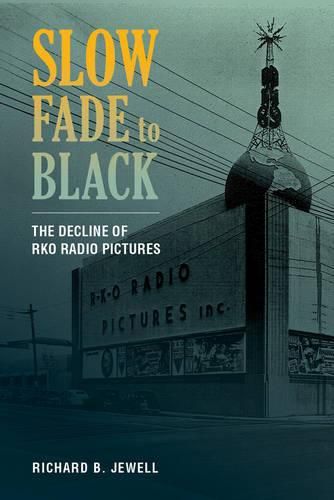Readings Newsletter
Become a Readings Member to make your shopping experience even easier.
Sign in or sign up for free!
You’re not far away from qualifying for FREE standard shipping within Australia
You’ve qualified for FREE standard shipping within Australia
The cart is loading…






Slow Fade to Black completes Richard B. Jewell’s richly detailed two-part history of the RKO film studio, which began with RKO Radio Pictures: A Titan Is Born, published in 2012. This second volume charts the studio’s fortunes, which peaked during World War II, declined in the postwar period, and finally collapsed in the 1950s. Drawing on hard-to-access archival materials, Jewell chronicles the period from 1942 to the company’s demise in 1957. Towering figures associated with the studio included Howard Hughes, Orson Welles, Charles Koerner, Val Lewton, Jane Russell, and Robert Mitchum. In addition to featuring an extraordinary cast of characters, the RKO story describes key aspects of entertainment history: Hollywood’s collaboration with Washington, film noir, censorship, HUAC, the rise of independent film production, and the impact of television on film. Taken as a whole, Jewell’s two-volume study represents the most substantial and insightful exploration of the Hollywood studio system to date.
$9.00 standard shipping within Australia
FREE standard shipping within Australia for orders over $100.00
Express & International shipping calculated at checkout
Slow Fade to Black completes Richard B. Jewell’s richly detailed two-part history of the RKO film studio, which began with RKO Radio Pictures: A Titan Is Born, published in 2012. This second volume charts the studio’s fortunes, which peaked during World War II, declined in the postwar period, and finally collapsed in the 1950s. Drawing on hard-to-access archival materials, Jewell chronicles the period from 1942 to the company’s demise in 1957. Towering figures associated with the studio included Howard Hughes, Orson Welles, Charles Koerner, Val Lewton, Jane Russell, and Robert Mitchum. In addition to featuring an extraordinary cast of characters, the RKO story describes key aspects of entertainment history: Hollywood’s collaboration with Washington, film noir, censorship, HUAC, the rise of independent film production, and the impact of television on film. Taken as a whole, Jewell’s two-volume study represents the most substantial and insightful exploration of the Hollywood studio system to date.